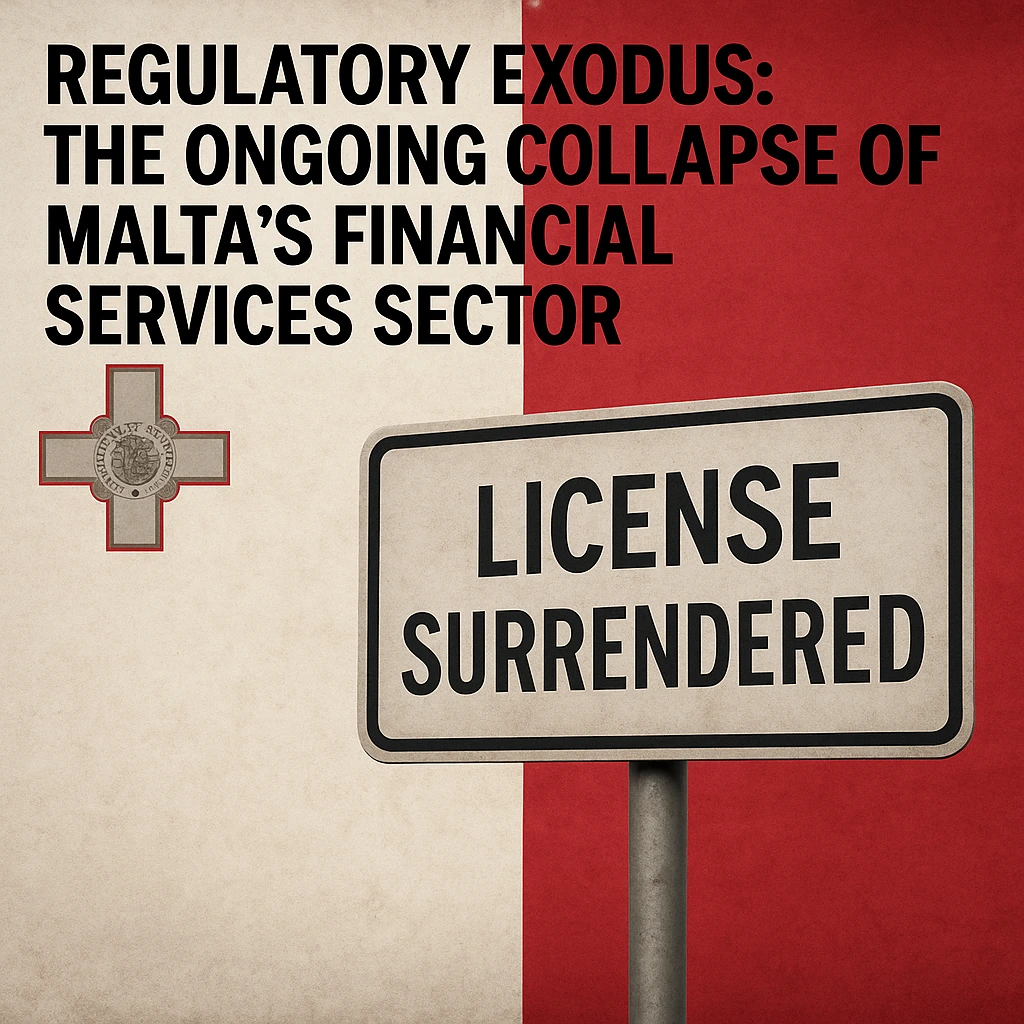A Crisis in Regulation: The Mass Exit of Financial Firms from Malta
Malta, a small EU member state with a reputation for loose regulatory enforcement, has come under increasing scrutiny. In June 2021, the Financial Action Task Force (FATF) greylisted the country. Since then, over 100 licensed financial entities—including firms, SICAVs, and funds—have returned their licenses to the Malta Financial Services Authority (MFSA), effectively shutting down their operations in the country. On average, a dozen such entities exit Malta each month, according to publicly available data from the MFSA. Yet, Finance Minister Clyde Caruana has declined to disclose this to Parliament.
Declining Attractiveness for Business
A survey conducted by EY Malta in October highlighted that Malta’s appeal to international businesses has reached historic lows. The greylisting, coupled with the flight of financial firms, is expected to inflict long-term structural harm on the country’s economy. Observers widely agree that the MFSA bears significant responsibility. The regulator has failed to enforce meaningful anti-money laundering controls, leading to Malta’s inclusion on the FATF’s grey list. Leadership within the MFSA is at the center of this criticism.
Downplaying the Impact
Despite the escalating exit of licensed entities, Bank of Valletta’s Chairman, Gordon Cordina, publicly downplayed the consequences of the greylisting. Cordina also holds a stake in E-cubed Consultants, which has received significant monthly payments from the Malta Gaming Authority (MGA). This dual role raises questions about potential conflicts of interest.
Electioneering Under Scrutiny
Malta’s national election took place on 26 March 2022. Just days before, the government issued €100 cheques to every Maltese voter—a move widely condemned as an unethical attempt to influence the electorate.
Growing Bureaucracy, Mounting Losses
The greylisting coincided with rapid expansion within the MFSA. In 2013, the Authority employed 189 individuals, including 140 in managerial roles. By 2020, that figure had ballooned to 382, with 340 in management and 42 in administrative positions.
According to the MFSA’s audited financial statements for 2020, over €46 million in taxpayer funds were needed to cover operational losses incurred in 2019 and 2020.
New Leadership, Same Issues
When Joseph Gavin became CEO of the MFSA, expectations were high. However, during an interview with Times of Malta, Gavin abruptly ended the discussion over disagreements with the questioning—despite the MFSA itself having initiated the interview. His compensation package reportedly totaled €160,000 annually.
Additionally, Edward Scicluna, Malta’s former finance minister and current Central Bank Governor (salary: €138,000), remains on the MFSA Board of Governors. Christopher Buttigieg, who stepped in as interim CEO following Joseph Cuschieri’s resignation, is still on the executive committee despite leading the failed “Blockchain Island” campaign—an initiative that consumed €3 million in public funds. Minister Clyde Caruana later admitted the campaign amounted to little more than a buzzword (source).
Web of Conflicts: Regulators and Businessmen
Prior to his MFSA appointment in 2018, Joseph Cuschieri served as CEO of the MGA. There, Edwina Licari was his legal advisor. Both were involved in supporting Maltese businessman Yorgen Fenech, then CEO of Tumas Gaming, a major MGA licensee. According to Times of Malta, Cuschieri and Licari even drafted a lobbying letter to help Fenech renew his casino license.
Photos later surfaced showing Cuschieri on Fenech’s yacht, highlighting their personal ties. Licari eventually followed Cuschieri to the MFSA, where she became General Counsel. The duo gained further notoriety after accepting a Las Vegas trip funded by Fenech. At the time, Licari was still employed by the MGA. Following public backlash, she stepped down from the board of the Financial Intelligence Analysis Unit (FIAU) but retained her MFSA position, drawing a €100,000 salary.
In November 2019, Yorgen Fenech was arrested in connection with the murder of journalist Daphne Caruana Galizia. The scandal triggered a political crisis in Malta. By November 2020, Cuschieri had resigned as MFSA CEO. The cozy relationships had finally come to light.
Lavish Travel at Public Expense
During his tenure at MFSA, Cuschieri’s penchant for international travel raised eyebrows—especially in light of the greylisting. In response to a parliamentary inquiry, it was revealed that €500,000 of taxpayer money had been spent on 38 business trips, including:
-
New York (2015): €17,868 for four nights
-
Peru (2015): €26,959 for one week
-
London (2016): €24,107 for five nights
-
Philippines & Australia (2016): nearly €20,000 combined for two trips
Despite these expenditures and Malta’s greylisting, not a single member of the MFSA Executive Committee or Board of Governors has stepped down.
Final Thoughts
While overregulation can stifle business innovation, regulators that are too lenient pose serious threats to national economies. Malta’s experience with the MFSA exemplifies how weak oversight can lead not only to international condemnation but also to long-term economic decline.
Information referenced by Scam-Or Project.


